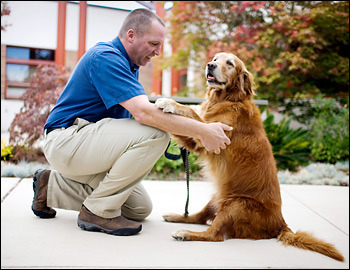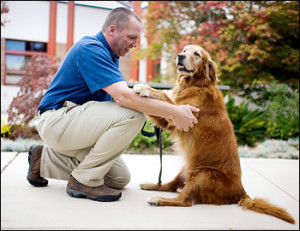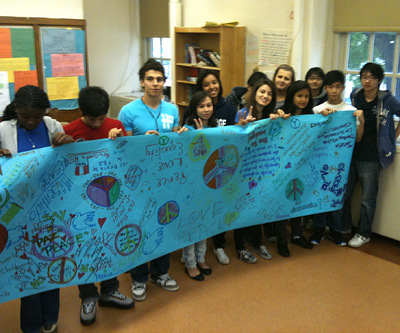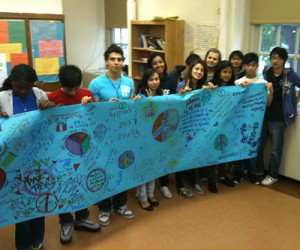Dog Good.
Hi. I’m Meg Olmert and this is my first posting as a Senior Fellow at the Center for Health Media and Policy. My public health focus is on the healing power of the human-animal bond. A growing body of research shows that friendly contact with animals can reduce heart rate, blood pressure, ease worry, and help us connect with friends and family. Considering that more than two-thirds of U.S. homes include a pet and pet keeping is on a sharp rise in Asia and throughout the developing world—that’s a lot of hearts and minds that are, or could be, falling under the beneficial neurochemical spell of animals.
In the early 1980s scientists discovered brain chemicals that promote social attraction and attachment–they also happen to lower heart rate, blood pressure, and other physiologic responses to stress and pain. And one in particular—oxytocin—also happens to be a powerful antioxidant. And so the race was on for big pharma to harness some of the most powerful hormones our brain produce to treat all social ills from shyness to autism. Sound familiar ladies?
Meanwhile, in the last decade we’ve seen that friendly contact with dogs naturally triggers this brain chemistry in humans. My quest for the last two decades has been to understand how opening our hearts to animals can safely, immediately, and effectively bolster these brain systems that are essential to our mental and physical well-being.
Here’s a link to read about dogs are doing just that in our soldiers returning from combat with PTSD. This canine therapy program is called Paws for Purple Hearts, and as its Director of Research, I will oversee a study to measure the body-brain changes these dogs are creating in our Vets. To learn more about the biology of the human-animal bond, please visit my website.
Meg Daley Olmert is the author of Made For Each Other, The Biology of the Human-Animal Bond (DaCapo, 2009).
[caption id="attachment_10658" align="alignleft" width="300"] Photo from Washington






